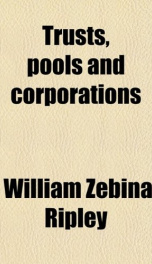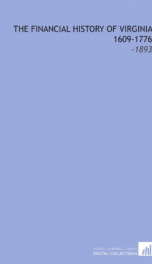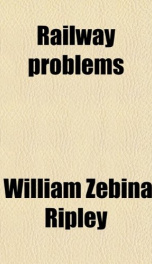trusts pools and corporations

Purchase of this book includes free trial access to www.million-books.com where you can read more than a million books for free. This is an OCR edition with typos. Excerpt from book: II THE DEVELOPMENT OF THE WHISKEY TRUST1 IT is probably too soon to tell with even a reasonable degree of certainty what the outcome of the present tendency towards combination among producers is to be. So far there have been not a few egregious failures, the most noteworthy being the collapse of the copper syndicate though that was hardly a trust, technically speaking; but there have been also a few apparently noteworthy successes. It seems clear, at any rate, that we have still some time to wait before we can say what the' resulting normal is to be; and in the meantime it seems best not to be too hasty in exterminatory legislation, in sweeping denunciation nor in unqualified praise, but to study as accurately as is possible the history, management and tendency of the individual organizations, that when the time for action comes we may act with knowledge. The present article is an attempt to describe, as accurately and fully as the information that can be secured will permit, one of the (apparently, at least) most successful of these organizations: "The Whiskey Trust " ; more accurately: "The Distillers' and Cattle-Feeders' Trust." The significance and tendency of such an organization as this cannot be understood without a knowledge of the circumstances leading to its formation. In this case, interest is added by the fact that legislation by the United States and by some European nations is, doubtless, indirectly responsible in good part for the condition of business that led to the formation of the trust. It is well known that, from the establishment of our government till the outbreak of the Civil war, distilled spirits were for the most part comparatively free from taxation by the United States. The tax levied by the recommendation of AlexanderHamilton, which led to...
Users who have this book
Users who want this book
What readers are saying
What do you think? Write your own comment on this book!
write a commentif you like trusts pools and corporations try:
Other books by this author
Do you want to exchange books? It’s EASY!
Get registered and find other users who want to give their favourite books to good hands!





